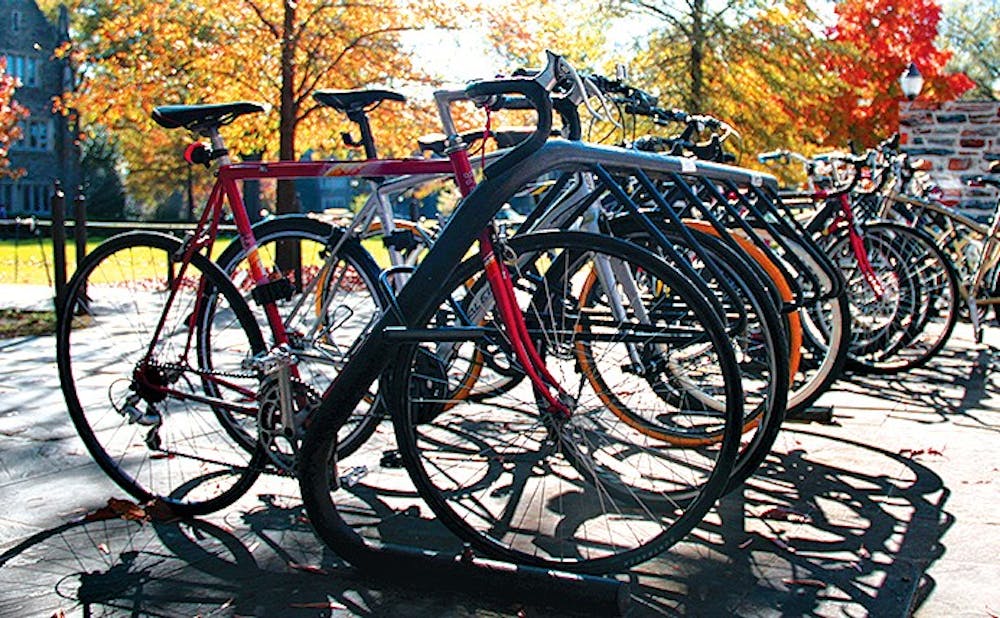Just months after the University disbanded the Duke Bikes loaner program, Duke Student Government is preparing to introduce a bike sharing program to campus.
In late August, 65 bikes from the bike loaner program, run by the Outpost, were auctioned off at the Arts Annex, where they were moved during the West Union renovations. The bike loaner program, which was hosted in the basement of the West Union, was not cancelled due to lack of student interest, but rather the expense, inaccessibility and difficulty in managing the program, said DSG President Stefani Jones, a senior.
Although the new program will be run by DSG, they were not involved with the decision to cancel the old program.
“It was a surprise to us,” Jones said.
The end of this program prompted DSG to begin working on a new program that would be more accessible to students and more focused on environmental sustainability.
Junior Raymond Wang used loaned bikes to travel off-campus on three occasions.
“I definitely miss it,” Wang said of the old bike program.
DSG gathered student input through surveys emailed to the student body, which sophomore Lavanya Sunder, DSG vice president for services, said helped determine the needs of the bike-using community.
Sixty percent of students who responded to the survey said they would use loaned bikes instead of cars between campuses, Sunder said. Seventy percent said they liked the idea of a free bike program.
The new program, which Sunder compared to Citi Bike—a bike-sharing program in New York City—differs greatly in structure from the old system.
Under the new system, students will be able to access bikes from more central locations using a code given to them online or through a mobile app. After finishing their ride, they can return them to any rack location around campus. Bikes will be equipped with their own U-locks.
Sunder estimated that there would be three to four central racks with 25 bikes on each rack.
The new program will be flexible, allowing students the freedom to borrow a bike on short notice to travel between campuses or off-campus.
The off-campus option was important for Wang, who used the bikes mostly to go out into Durham.
DSG has chosen to work with Zagster, a bike sharing company that works with hotels, businesses, apartments and other universities, including Yale University.
Zagster—which uses United Nations approved protocols for measuring carbon reduction—appealed to DSG because it is the only company that shows bike users the reduction in their carbon footprint.
The campus has received recognition as a ‘Bicycle Friendly University’ from the League of American Bicyclists.
This “Bronze” designation was awarded in March 2012, recognizing efforts to increase road safety using wide shoulders, bike lanes and shared lane marking on major campus roads. It also recognized incentives for professors and graduate students to bike to campus.
DSG members are optimistic about the timeline of implementing the new program. Both Sunder and Jones have received positive feedback on their work.
“We met with key administrators and they really liked the idea of the program, and we’re taking the first official steps,” Sunder said.
Get The Chronicle straight to your inbox
Signup for our weekly newsletter. Cancel at any time.

